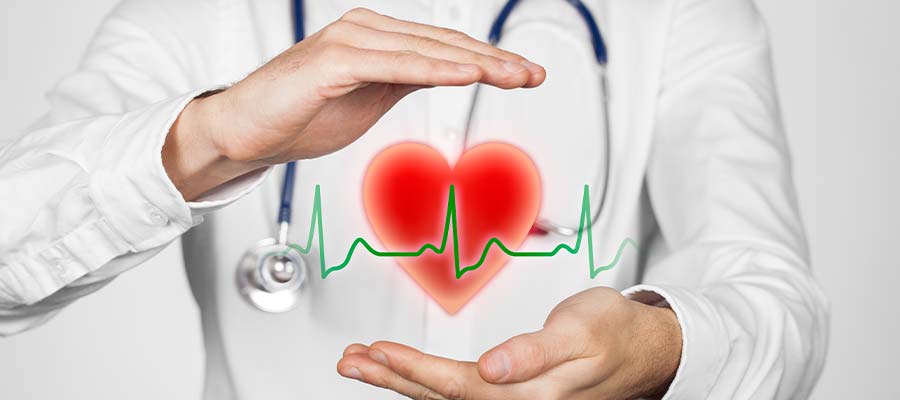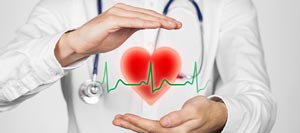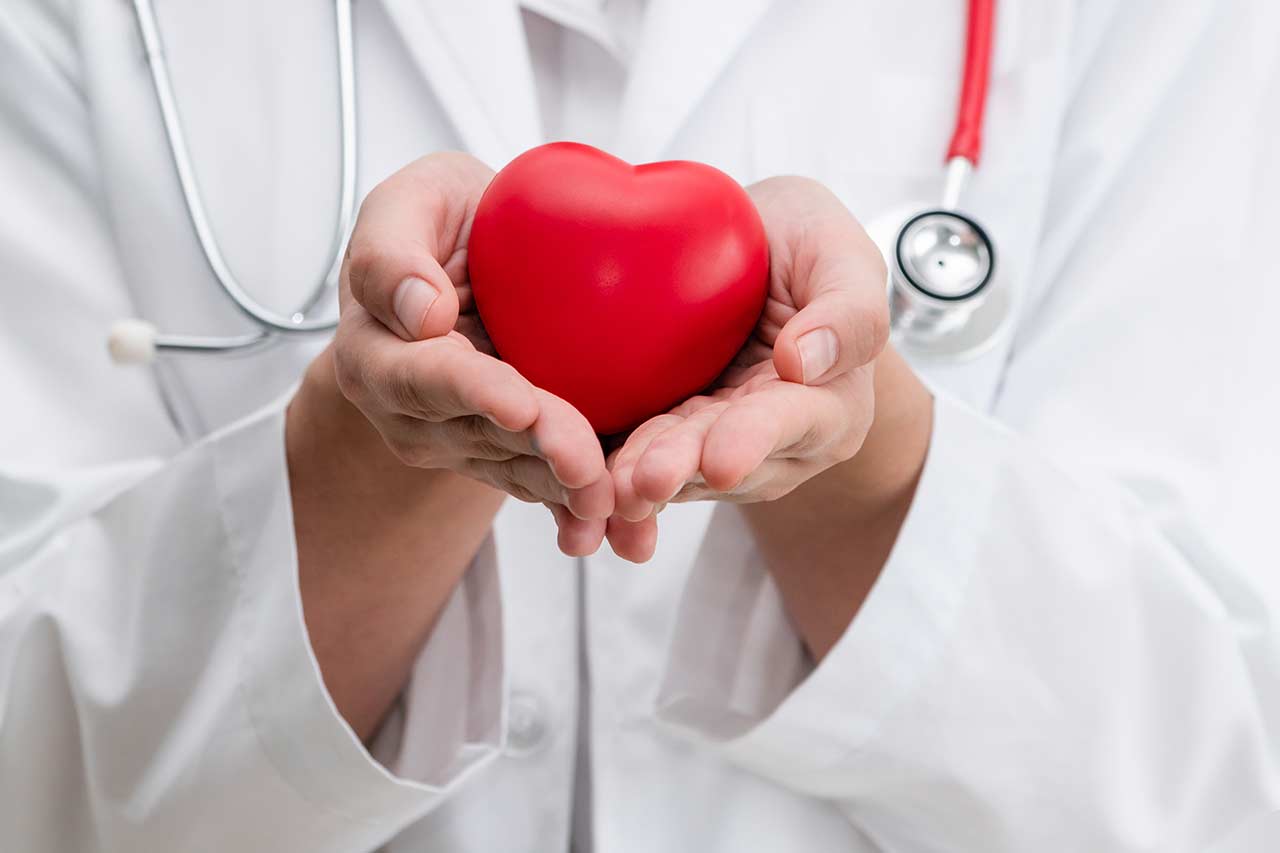Cardiovascular Disease Treatment Clinic in Charleston, SC
Cardiovascular diseases can considerably affect the quality of your life. At COEM, we offer a wide range of treatment options to help you improve your heart health. Our team has experience and expertise in providing effective treatments for heart and vascular problems. For more information, contact us today or book an appointment online. We are conveniently located at 7510 North Forest Drive North Charleston, SC 29420.




Table of Contents:
What is cardiovascular disease?
Common heart and cardiovascular disease conditions
Signs and symptoms of common heart attack
Complications associated with heart attack
Understand your risks to prevent a heart attack
Why choose us for cardiovascular disease treatment?
At COEM, We use the latest technology to ensure better outcomes for our patients and provide compassionate care to create a stress-free experience. We will help you create a personalized treatment plan to address your individual health needs.
Cardiovascular disease or CVD is a broad term used for an ailment of the heart or blood vessels. It is usually connected with a build-up of a substance, called plaque, in the walls of the arteries. This increases the chances of blood clotting in the arteries, thus making blood flow more difficult. This condition is known as atherosclerosis and is the primary cause of all CVDs.
Heart Disease
Heart and blood vessel problems are mainly related to atherosclerosis. When blood gets clotted in the arteries due to atherosclerosis, it can block the blood flow through them and lead to a heart attack or stroke.
Heart Attack
A heart attack happens when blood clots formed inside the arteries block the blood flow to an area of the heart altogether. Most people generally outlive their first heart attack and resume their normal lives for many more years. However, once you have gone through a heart attack, you need to comply with the lifestyle changes recommended by your doctor and take the prescribed medications.
Stroke
The most common type of stroke is called ischemic stroke. It occurs when a blood vessel that supplies blood to the brain gets blocked by a blood clot. If this happens, the brain cells become deprived of blood and will start to die. This results in the loss of body functions controlled by that part of the brain, such as talking or walking.
Another type of stroke, called hemorrhagic stroke, occurs when a blood vessel ruptures within the brain. The main reason for this type of stroke is uncontrolled hypertension.
Heart Failure
Heart failure, also known as congestive heart failure, happens when the heart fails to meet the body’s need for blood and oxygen even though it keeps on working. This condition can worsen if left untreated.
Arrhythmia
An arrhythmia occurs whenever there is an abnormal change in the heart rhythm. That irregular heartbeat reduces the efficiency of your heart. There are two types of arrhythmias: bradycardia and tachycardia. Bradycardia occurs when the heart beats less than 60 times per minute, while tachycardia occurs when it beats more than 100 times per minute.
Heart Valve Problems
Heart problems can also occur when heart valves, which control the direction of blood flow through the heart, experience malfunctions. A faulty heart valve can allow blood into different chambers of the heart to get mixed up and compromise healthy blood circulation in the body.
Heart attack symptoms and severity can vary from person to person. Some heart attacks strike suddenly, while others last longer. Common heart attack symptoms are:
• Recurrent tightness, pressure, pain, or a squeezing sensation (angina) in your chest or arms. This pain can spread to your back, neck, and jaw.
• Lightheadedness or sudden dizziness
• Shortness of breath
• Fatigue
• Heartburn, nausea, indigestion, or abdominal pain
• Cold sweat
There are two types of complications that can follow a heart attack. The first type of complication occurs immediately after the attack and the second occurs later on.
Immediate Complications
• Arrhythmias – The heartbeat becomes irregular. It beats either too fast or too slow.
• Cardiogenic Shock – Sudden lowering of blood pressure causing difficulty for the heart to pump enough blood for the body.
• Pulmonary Edema – Fluid accumulation in and around the lungs.
• Hypoxemia – Blood oxygen levels become too low.
• Deep Vein Thrombosis (DVT) – Deep veins of the pelvis and legs develop blood clots interrupting the blood flow in the vein.
• Myocardial Rupture – Damages caused to the heart walls due to the heart attack may increase the possibility of a heart wall rupture.
• Ventricular Aneurysm – A bulge is formed in the ventricle (heart chamber).
Complications That Can Occur Later
• Aneurysm – The damaged heart wall tissue can get scarred, leading to abnormal heart rhythms, blood clots, and low blood pressure.
• Angina – Chest pain caused by a deficiency of oxygen in the heart.
• Congestive Heart Failure – The heartbeat weakens and leaves the person feeling exhausted.
• Edema – Swelling of ankles and legs.
• Erectile Dysfunction – A heart disease can cause erectile dysfunction in men.
• Loss of Libido – Men can experience a loss of sexual drive.
• Pericarditis – Pericardium (lining of the heart) can get inflamed and cause severe chest pain.
Risk factors can be classified into three types.
• Major Risk Factors -These include hereditary, increasing age, and gender.
• Modifiable Risk Factors – These include smoking, high blood pressure, high blood cholesterol, diabetes, physical inactivity, and obesity.
• Contributing Risk Factors – These are factors that may contribute to developing cardiovascular disease. These include stress, alcohol consumption, and improper diet.
At COEM, we have an expert team who have a specialization, expertise, and a broad range of treatment options for every heart problem. We are dedicated to providing comprehensive treatments to help you enjoy your life again. Our highly skilled and trained team helped save and transform the lives of hundreds of our patients.
If you want to learn more about our cardiovascular disease treatment program and how we can help you, contact us today. We are conveniently located at 7510 North Forest Drive North Charleston, SC 29420. We serve patients from Charleston SC, Mount Pleasant SC, Summerville SC, North Charleston SC, Goose Creek SC, Ladson SC, Hanahan SC, James Island SC, John’s Island SC, Daniel Island SC, West Ashley SC, Moncks Corner SC, Sullivans Island SC, Folly Beach SC, Isle of Palms SC and all of South Carolina, Nationally, and Internationally. Patients routinely fly into Charleston to be evaluated by COEM and to enjoy this beautiful city, which is a Condé Nast and Travel and Leisure Top Domestic and International Tourist Destination.

Check Out Our 5 Star Reviews


Additional Services You May Like
- Functional Medicine
- Allergy and Autoimmunity
- Asthma and COPD
- Autoimmune Diseases
- Allergy and Immunology
- Anti Aging Medicine
- Autism and Children
- ADHD
- Bacterial Infections
- Chemical Toxicity
- Candida Fungal Problems
- Cancer Treatment
- Chronic Illness
- Chronic Inflammatory Response Syndrome (CIRS)
- Chronic Fatigue
- Cardiovascular Disease
- Carbon Monoxide Poisoning
- Chelation Therapy
- Depression
- Environmental Medicine
- Ear Ringing and Dizziness
- Fatigue Treatment
- Fertility and Preconception Care
- Gut Health
- Heavy Metal Toxicity
- Hormonal Imbalances
- Headaches and Migraines
- Hormone Balancing (Men & Women)
- Hepatitis
- Integrative Medicine
- Independent Medical Evaluations
- Influenza
- Lab Testing
- Mold Toxicity
- Malnutrition
- Neurodegenerative Disease
- Natural Hormone Balancing For Women
- Preservative-Free IV Therapy
- Stomach Acid Imbalance
- Smoking Cessation Program
- Skin Therapy (Anti-Aging)
- Swine Flu
- Thyroid
- Mold Toxicity
- Vitamin D
- Weight Loss Program
- Women’s Breast Health Formula

Additional Services You May Like
- Functional Medicine
- Allergy and Autoimmunity
- Asthma and COPD
- Autoimmune Diseases
- Allergy and Immunology
- Anti Aging Medicine
- Autism and Children
- ADHD
- Bacterial Infections
- Chemical Toxicity
- Candida Fungal Problems
- Cancer Treatment
- Chronic Illness
- Chronic Fatigue
- Cardiovascular Disease
- Chronic Inflammatory Response Syndrome (CIRS)
- Carbon Monoxide Poisoning
- Chelation Therapy
- Depression
- Environmental Medicine
- Ear Ringing and Dizziness
- Fatigue Treatment
- Fertility and Preconception Care
- Gut Health
- Heavy Metal Toxicity
- Hormonal Imbalances
- Headaches and Migraines
- Hormone Balancing (Men & Women)
- Hepatitis
- Integrative Medicine
- Independent Medical Evaluations
- Influenza
- Lab Testing
- Mold Toxicity
- Malnutrition
- Neurodegenerative Disease
- Natural Hormone Balancing For Women
- Preservative-Free IV Therapy
- Stomach Acid Imbalance
- Smoking Cessation Program
- Skin Therapy (Anti-Aging)
- Swine Flu
- Thyroid
- Mold Toxicity
- Vitamin D
- Weight Loss Program
- Women’s Breast Health Formula










